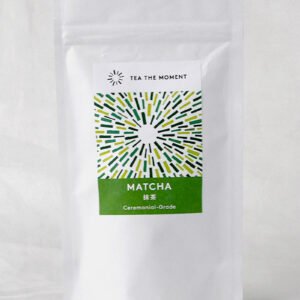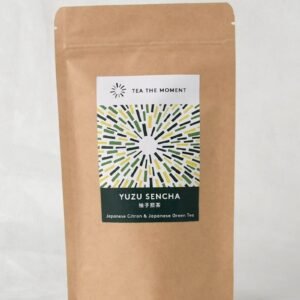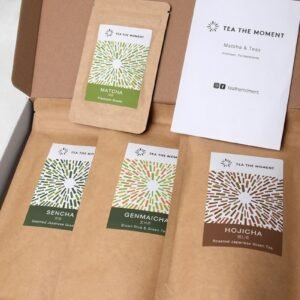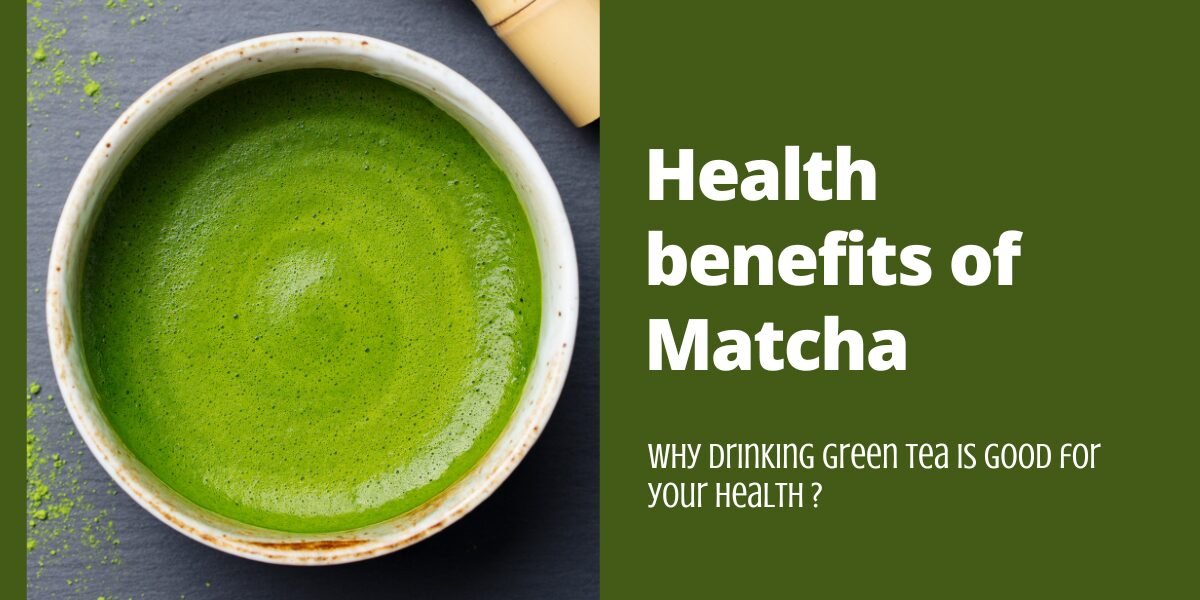Health benefits of Matcha.
Matcha is 100% of Tea Leaf. and Tea was recognized as a medicine.
In the 6th century, Chinese people started to use green tea as a medicine. Various beneficial health effects of green tea can be found in their medical books from this century. Green tea has a cleansing and curing effect. It cleanses the heart, liver, lungs, spleen, and kidneys, and cures diarrhea, fever-induced mouth dryness, gastrointestinal illness, and tumors. Chinese people also found that if you keep drinking green tea, your mind will calm down, you will get smarter, you will need less sleep, you will enlighten yourself, and aging will be reduced.
Now, in the 21th century, knowledge about the health benefits of green tea is increased. Green tea contains many bioregulatory ingredients, which can either be consumed by drinking (water soluble) or by eating (water non-soluble), are e.g., catechins, caffeine, theanine, and vitamin C.
The bioregulatory ingredients in green tea are believed to have a synergistic effect on the health benefits of tea. For example, catechins can prevent obesity and in the presence of caffeine, this effect is enhanced. The caffeines in tea also has a synergistic effect with the ingredient theanine. Caffeine will wake you up, while theanine will calm you down and therefore, moderate the effect of caffeine. The catechins also have a synergistic effect with vitamin C in green tea. Namely, to protect the fragile vitamin C in tea from breaking down.
Drinking matcha = Eating tea leaves
The allure of matcha lies in its image as a powdered form of green tea. More precisely, matcha refers to the powdered version of tea known as “Tencha.” This method of preparation allows for the consumption of the nutritional components of the tea leaves without losing much through brewing. As a result, matcha is considered a healthful beverage as it enables the intake of nutrients without significant loss. Recently, matcha has gained international recognition as a superfood, similar to “Açaí” and “Chia Seeds.”
Matcha has been studied for many years. We can expect to obtain the following effects from matcha.
We can expect to obtain the following effects from Matcha.
Boosts Immune System
Matcha contains Catechin (Epigallocatechin), contributing to an enhanced immune system. Activation of immune cells like “Macrophages” helps improve resistance to illnesses such as colds and influenza.
Promotes Relaxation
The delightful taste of green tea is influenced by the action of “Theanine” (an amino acid). Theanine has a relaxing effect and includes components that aid in achieving restful sleep. Given its relaxing properties, Theanine is also available in supplement form.
Prevents Colds
Catechins in matcha are believed to have antiviral properties, making matcha effective in preventing colds and influenza.
Suppresses Body Fat
Catechins in matcha inhibit the absorption of dietary fats and enhance the body’s fat-burning capacity, making it a beneficial aid in weight loss. This is why catechin-containing teas are often recommended for their effectiveness against body fat.
Antioxidant Effect for Anti-Aging
Polyphenols in matcha exhibit a potent antioxidant effect, particularly Epigallocatechin, aiding in the removal of free radicals. Additionally, matcha contains Vitamin E, contributing to the prevention of arteriosclerosis and aging.
Effective Against Constipation During Dieting
Matcha is rich in both insoluble and soluble dietary fibers. Soluble dietary fiber prevents a rapid rise in blood sugar levels, making it effective against constipation during dieting.
For Those Concerned About Bad Breath
Catechins in matcha include “Flavonoids,” known for their efficacy in preventing bad breath. Drinking matcha after meals provides a dual effect of deodorizing and sterilizing, making it an excellent choice for those concerned about bad breath.
Delays Symptoms of Cognitive Decline:
Research suggests that the Catechins in matcha activate cognitive functions, providing potential benefits in preventing cognitive decline. While matcha alone shows promise in preventing cognitive decline, combining it with fish consumption enhances the preventive effect. The daily consumption of tea is believed to play a role in slowing down the progression of cognitive decline.
Components contained in tea
1, Catechin
Since 1832, the name “catechin” is founded. It is derived from catechu, an extract of Acacia trees, a genus of the Leguminosae family. From 1929, Michiyo Tsujimura discovered unknown one after another catechins in green tea. He found that catechins brings astringency (or bitterness) to tea. This bioregulatory ingredient is most abundant in green tea and has various functions to improve our health.
Catechins have been used as a medicine for already a long time. Among their health benefits, the most powerful one is the anti-oxidant effect. Catechins stop active oxygen from attacking human tissues and causing illness to the body. Therefore, they prevent the body from developing diseases. It is said that the anti-oxidant effect of catechins in green tea are 20-30x higher than of vitamin C and vitamin E.
Besides this excellent anti-oxidant effect, catechins in green tea have more beneficial health effects on our body, such as bactericidal, deodorizing, and detoxifying effects.
2, Theanine
Theanine is an unique amino acid found almost only in tea plants. Compared to other teas, green tea is known to have the greatest amount of theanine. Theanines bring a refreshing sweetness to tea.
When you drink a cup of green tea, and thereby ingest theanine, your mind will get calmer and you brain will start emitting alpha waves. This will relax your body and at the same time, increases your concentration. This was shown in a shown in which people drunk a cup of sencha containing 200 mg of theanine. Thirty minutes after drinking the tea, alpha waves were emitted.
3, Caffeine
Caffeine in tea has several beneficial health effect on our body, such as stimulating and exciting the central nervous system to XX, acting on the heart to XX, acting on the kidneys to promote diuresis, promoting gastric acid secretion to help digesting and absorbing food, and breaks down body fat.
Immediately after drinking a cup of tea, caffeine is absorbed by your body and reaches its maximum concentration in your blood in 30 minutes to 1 hour. This slow increase in caffeine, makes a cup of tea a better drink than a cup of coffee. Coffee also contains caffeine, but reaches its maximum concentration in your blood almost immediately after drinking. Therefore, the caffeine in tea has a different effect to your body than caffeine in coffee.
4, Vitamin C
Tea contains a lot of vitamin C. This ingredient is sensitive to heat and alkalinity, is fragile, and easily oxidizes and dissolves in water. Steamed green tea “Sencha” contains a lot of vitamin C, while fermented green tea “wakocha” has, due to the oxidization, almost no vitamin C. By drinking 4.5 cups of sencha each day, your vitamin C intake will be 30% to 50% of the recommended daily intake.
Water-soluble component (20-30%)
| component | 1g of tea | Efficacy / Effect |
| Catechins | 110 to 170mg | Anti-oxidation, anti-mutation, anti-cancer, suppression of blood cholesterol elevation, suppression of blood pressure elevation, suppression of blood sugar elevation, suppression of platelet aggregation, antibacterial anti-worm tooth fungus, anti-virus, improvement of intestinal bacteria, anti-allergy, deodorization |
|---|---|---|
| caffeine | 16~35mg | Central nervous system excitement, drowsiness prevention, cardiotonic, diuretic effect, metabolic promotion |
| Theanine | 6~20mg | Cranial / nerve function regulation, relaxing effect |
| Flavonols | 6mg | Increased capillary resistance, antioxidant, anti-cancer, heart disease prevention, deodorant |
| Complex polysaccharide | 6mg | Suppression of blood sugar rise |
| Vitamin C (ascorbic acid) | 3~5mg | Anti-scurvy, antioxidant, anti-cancer, cold prevention, cataract prevention Immune function enhancement |
| γ-Aminobutyric acid (GABA) | 1mg anaerobic treatment 1-2mg | Blood pressure increase suppression effect, brain, nerve function regulation |
| saponin | 2mg | Anti-asthma, antibacterial, suppression of blood pressure rise |
| Vitamin B2 | 12mg | Angular stomatitis, dermatitis prevention, lipid peracidification inhibition |
| Dietary fiber | 30~70mg | Anti-cancer (colorectal cancer), suppression of blood sugar level rise |
| Minerals | 10~15mg | Zinc: Prevention of taste abnormalities, suppression of immunosuppression, prevention of dermatitis Fluorine: Prevention of tooth decay Manganese, copper, zinc, selenium: Antioxidant Potassium: Maintenance of ion equilibrium |
Water-insoluble component (70-80%)
| component | 1g of tea | Efficacy / Effect |
| Dietary fiber | 300~440mg | Anti-cancer (colorectal cancer), suppression of blood sugar level rise |
|---|---|---|
| Protein | 240~310mg | Nutrients (body constituents) |
| Lipids | 34~40mg | Nutrients (cell constituents, energy sources) |
| Chlorophyll | 6~10mg | Deodorant effect |
| Vitamin E (ascorbic acid) | 0.2~0.7mg | Hemolysis prevention, lipid peroxidation suppression, anti-cancer, anti-diabetes, blood circulation promotion cataract prevention, immune function improvement |
| CoQ10 | 0.1mg | Anti-aging, skin-beautifying effect |
| Beta carotene | 0.2mg | Antioxidant, anti-cancer, immune function enhancement, vitamin A source |
| Minerals | 40~50mg | Manganese, copper, zinc, selenium: antioxidants |
| Aroma component | 10~20mg | Aromatherapy effect |




